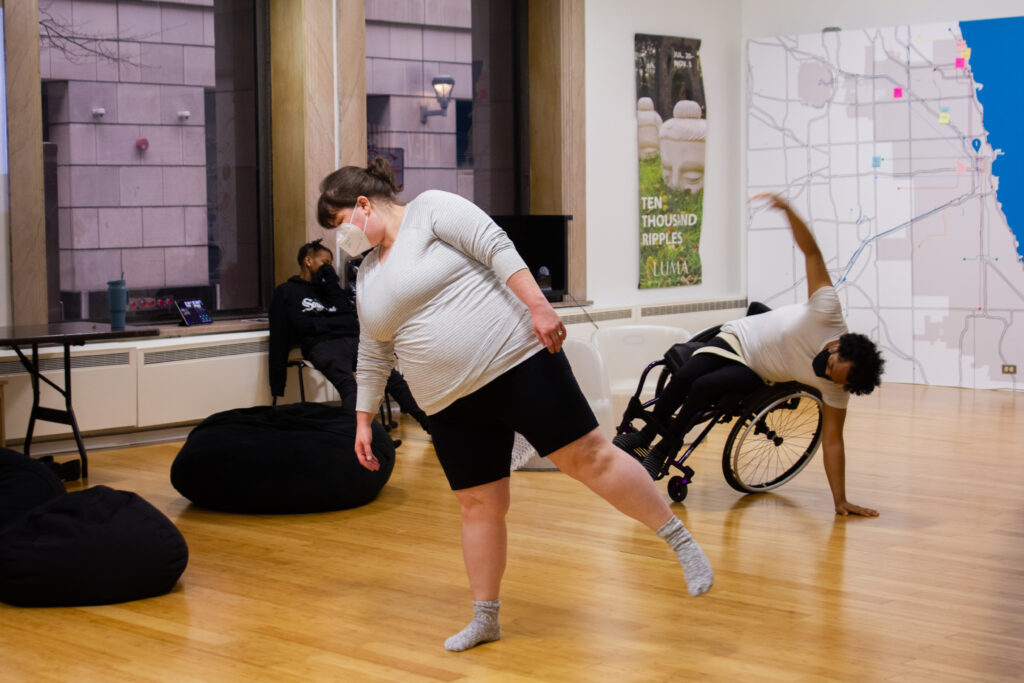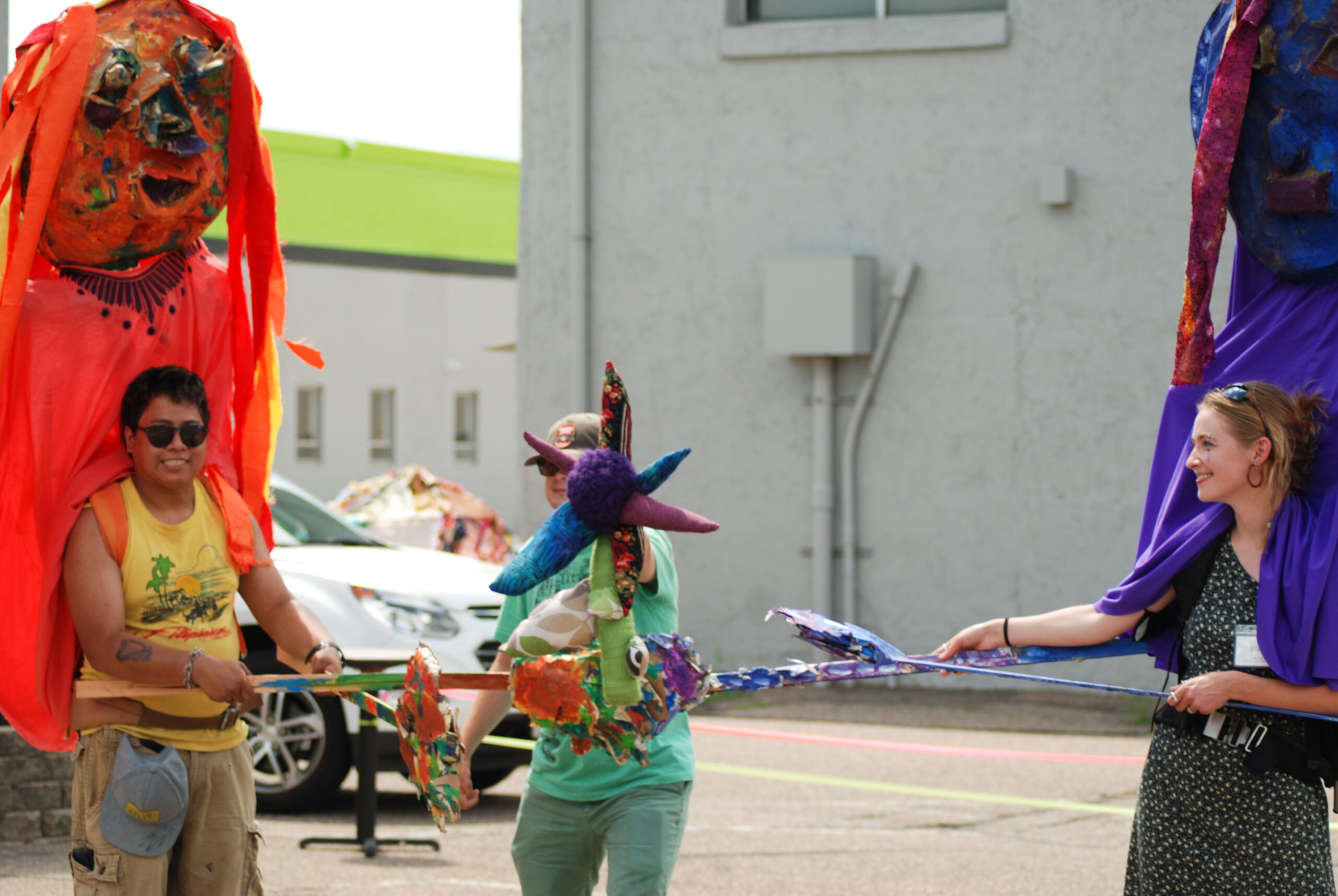In November of 2022, Arts Midwest published a Commitment to Accessibility. This commitment grew out of staff accessibility training and an internal working group that met bi-monthly to advance our goals.
As we’re coming up on one year since we published the Commitment to Accessibility, we want to share where we’re at with our communities.
What have we accomplished?
Updates on our 2022-2023 goals and new ones we made along the way:
- In May of 2023, we launched Midwest Award for Artists with Disabilities. This award celebrates visual artists with disabilities in the Midwest. We worked with Interact Center for the Visual and Performing Arts to make this award welcoming and accessible.
- We added questions to our grant applications that ask about grantees’ accessibility efforts. These questions encourage grantees to share their accessibility work. They also help our panels focus on funding accessible projects.
- In December of 2022, we launched a more accessible website with the help of Briteweb and the Chicago Lighthouse Project.
- We hosted an internal series called “Accessibility Conversations” to support our ongoing learning. In Spring 2023, we read and discussed the book “Demystifying Disability” by Emily Ladau.
- We continue to remind all staff to consider access services when budgeting and planning projects.
- We launched an Ideas Hub piece called “Approaching the 504 Self-Evaluation for Arts Organizations.” This resource offers transparency about our 504 self-evaluation. It also supports other organizations in going through the process.
Read a Resource
-
How To Complete a Section 504 Self-Evaluation for Accessibility
Need to complete a 504 self-evaluation for your organization? Unsure where to start? This resource intends to help break down the process. We’ll share how we approached our most recent 504 self-evaluation at Arts Midwest and what we learned.

What has changed?
- Due to organizational shifts, we need to postpone our plans for a community engagement survey and access advisory group. In the meantime, we are connecting with our communities in other ways, including surveying our panelists and applicants for the Midwest Award for Artists with Disabilities.
- Our previous accessibility coordinator transitioned out of Arts Midwest. Going forward two staff will co-coordinate our accessibility work: Chelsea Brown and John Kaiser.
What have we learned so far?
- Accessibility work is more sustainable when it’s prioritized and shared across an organization. Our working group, staff conversations, and embedding accessibility in our organizational goals have been critical to this work!
- Thanks to community feedback on the Midwest Award for Artists with Disabilities, we’ve learned more about making our programs more accessible. We’ll take these ideas into the next round of the award, and all our programs:
- Working with awardees to find solutions in the face of income barriers, for example, offering monthly payment plans
- Using plain, direct, and brief language in application guidelines and questions
- Sharing grant evaluation criteria with applicants and explaining exactly how panelists will used it to review applications
- Offering other ways of applying (over Zoom, over phone call, consensual nominations, and more).
What’s next?
We’ll continue to focus on active learning, setting relevant goals, and adapting our strategy. We’ll revisit our Commitment to Accessibility on a quarterly basis. As we begin visioning for DEIA goals in 2024, we’ll update and add new goals to our Commitment to Accessibility.
Questions?
For further information, please contact Arts Midwest’s Co-Accessibility Coordinators, John Kaiser and Chelsea Brown.
Contact John Contact Chelsea